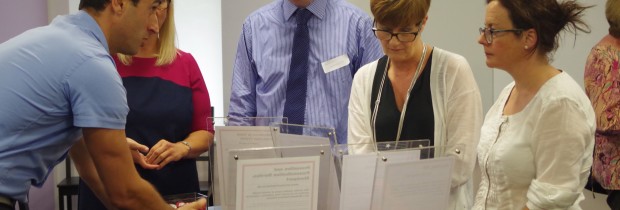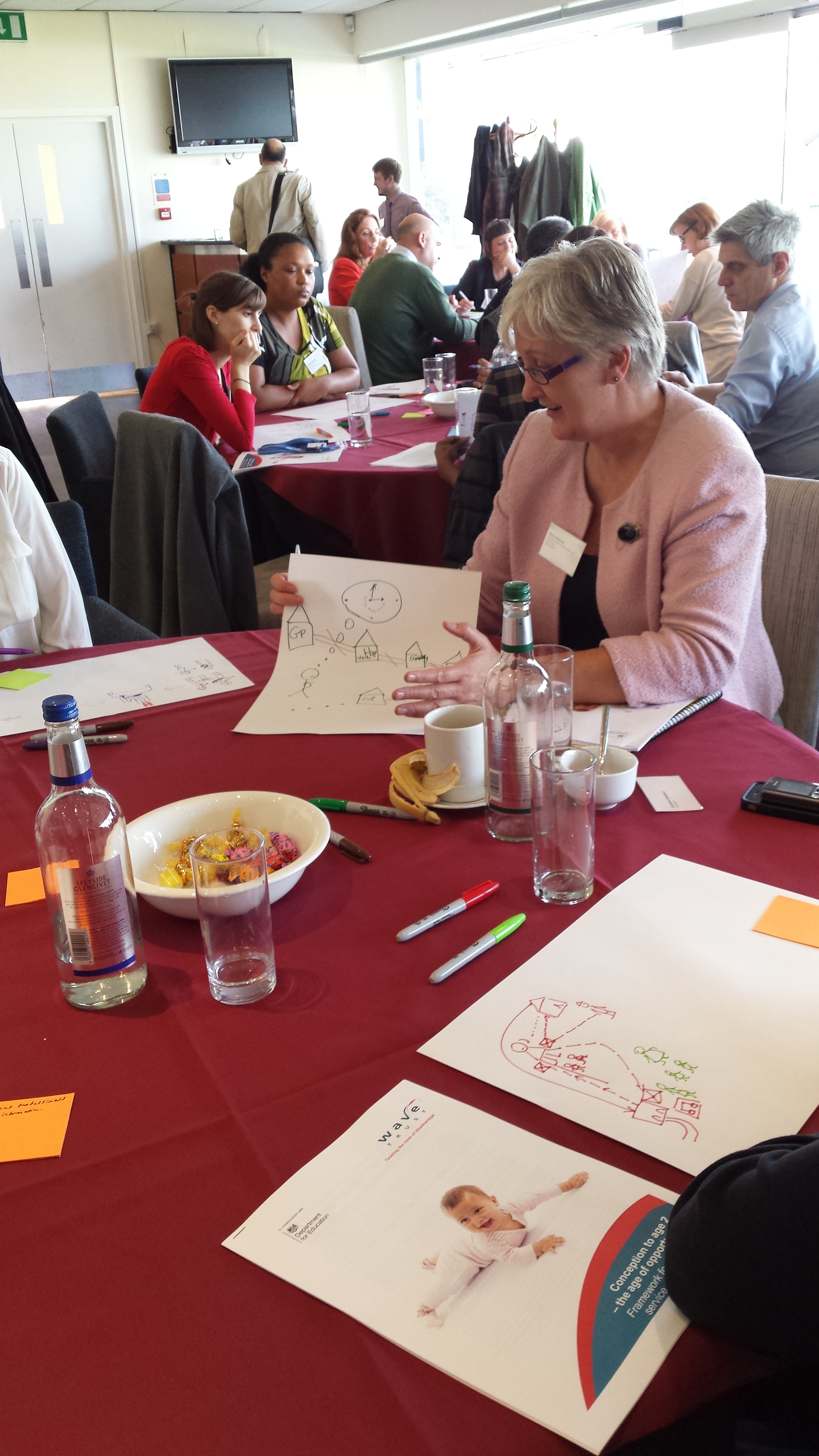Identifying possibilities
We use our systems expertise and practice knowledge to identify where it’s possible to get to.
Being bold (and asking lots of questions)
People get locked into certain ways of thinking, feeling and doing. Their day-to-day work and responsibilities result in default methods, approaches and assumptions about what is right and possible.
We bring space (sometimes literally) to think and reflect, and explore new versions and visions. We give people and organisations opportunities and methods to reflect together and get excited about doing things differently, for example by confronting them with the ‘art of the possible’ through carefully crafted exemplars of practice.
Sense making
We help people turn multiple and differing sources of information and data about what they do now into clear insights – we help show them what they have learned using cleverly designed processes and exciting, visual products. We don’t just look at the detail of practices or services as they are now, but simultaneously create opportunities (e.g. through Multiple Cause Analysis) for people to think system-wide.
From insights to ideas
Gathering insights and evidence about the way things are now can (and should be) challenging and confronting, but in our experience it’s the least difficult stage in an innovation or design process. Moving from the ‘knowledge of now’ to the creation of compelling ideas for change is hard. There is a real risk that people revert to their default ways of thinking and fail to convert what they have learnt into what we like to call ‘ideas with legs’, i.e. ideas that respond to evidence about what is wrong with now and have real, radical potential to change practice and/or systems for the better.
To help people generate ‘ideas with legs’ we might use a range of approaches:
- Introduction of external ‘provocateurs’
- Frameworks and practical tools
- Personalised coaching
- Ideas surgeries with experts and peers
- Processes to ‘deliberate’ and select promising ideas
- Theory of change

